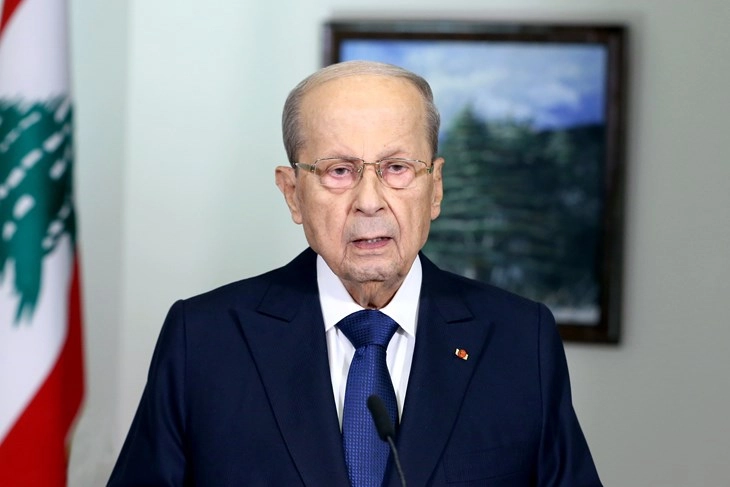Lebanon heads into unknown as president departs without successor

Beirut, 30 October 2022 (dpa/MIA) - Crisis-beleaguered Lebanon on Sunday was heading into the unknown as President Michel Aoun left the presidential palace a day before his six-year term is set to end without having a successor in place.
Due to deep divisions between Lebanon's leading political forces, no presidential successor has yet been named. Aoun's six-year term ends at midnight on Monday.
"We are heading towards the unknown," political observer Rabih al- Habr told Lebanon's New TV.
In an address he made before leaving the palace on Sunday, Aoun, 89, lashed out at Lebanon's judiciary and the central bank governor, blaming him for the country's financial collapse.
The governor is also being investigated in Europe on suspicion of money laundering.
"The judiciary is not performing its role and the culprits are still outside court," Aoun said, addressing his supporters.
"Today a phase ends and another begins, which requires an effort and a lot of work so that we can end our crises," Aoun added.
Hundreds of followers from Aoun's Free Patriotic Movement (FPM) lined the streets from the presidential palace to his new private residence to bid him farewell. They were waving large portraits of the president and the movement's flags.
"We will continue his legacy," a member of Aoun's party told dpa near the presidential palace.
"We will start a new era of opposition now with President Aoun," said another.
Shortly before leaving, Aoun signed a decree considering Prime Minister Najib Mikati's caretaker government to have resigned, Lebanon's state news agency NNA reported.
The Mediterranean country is thus hurtling into a greater political vacuum, having no government or president.
The Lebanese army has taken security measures in several parts of the country to keep pace with the movements accompanying Aoun's exit from office, witnesses said.
The Lebanese have blamed Aoun, a Christian, and his allies, the pro-Iranian Hezbollah movement, for deteriorating political and economic crises, which have been engulfing the country in recent years.
"Aoun threw the country into Iranian hands," said Mohamed Kenaan, a banker on Beirut's business thoroughfare, Hamra Street.
"What they are celebating?" Rola Hamdan, a housewife, said, referring to Aoun's backers.
"Lebanon is now bankrupt. Most Lebanese live in poverty. We have no electricity and most of our children are now living abroad to make a future for themselves," she added.
In 2006, Aoun signed a memorandum of understanding with Hezbollah, thus giving the Shiite Muslim group a major backing from his Christian followers.
During Aoun's term, Lebanon witnessed a severe financial meltdown and a deadly blast at the Beirut port, which killed at least 200 people, wounded 6,000 and displaced 300,000 others.
Lebanon is currently experiencing its worst financial crisis in decades.
The World Bank has described the crisis as among the world's most severe since the mid-1800s.
Last week, Lebanon and Israel signed a deal on a common maritime border which involves undersea gas exploitation, although both countries are officially in a state of war.







